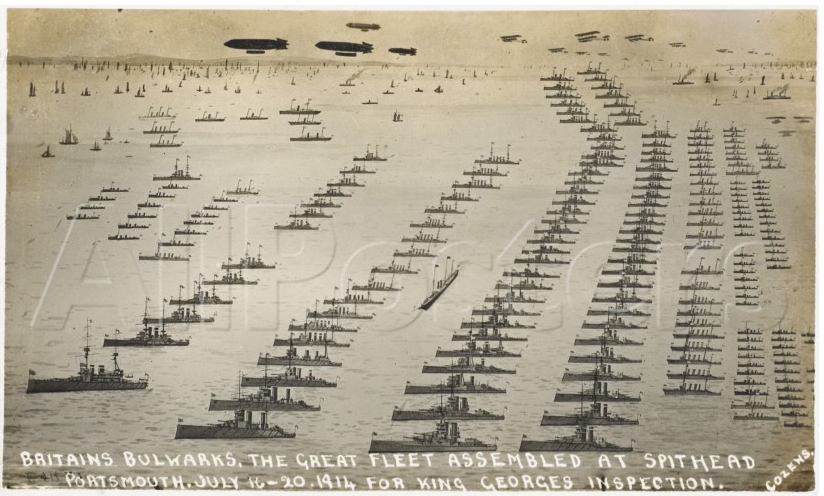Was Britain's WWI Blockade The First Atrocity Of The 20th Century?
 Expand
Expand
From 1914 to 1919, the Allied powers restricted the maritime supply of raw materials and foodstuffs to the Central Powers. The policy is often called a key component in the Allied victory, but it resulted in hundreds of thousands of civilian deaths, and introduced the world to a terrifying new kind of warfare.
The Great War is primarily remembered for its stifling land battles, but one of the conflict's largest and most sophisticated operations was conducted primarily at sea. Right from the start of the war, and until the mid part of 1919, the Allied powers, led by Britain's powerful sea fleet, obstructed Germany's and Austria-Hungary's ability to import goods. The basic idea was to starve the Central Powers and their military into submission.
A Violation of International Law
Despite its best efforts to do so in the preceding decades, Germany was never able to catch up to Britain in terms of its ability to control the seas. Once hostilities commenced in August 1914, Britain began restricting access to the North Sea, instituting checks on the shipping passing through the English Channel and posting a force, the X Cruiser Squadron, to patrol between the Shetland islands and Norway. As a result, German maritime trade was confined to the Baltic.
 Expand
Expand
It was an action that, quite understandably, shocked and outraged the Central Powers. As the global conflict began to take on the character of an attritional war, the encircled combattants became rightfully worried of the stranglehold.
Though largely forgotten by history, the actions of the British were in contravention of international law. According to the 1856 Declaration of Paris (still in force in 1914), blockades were permitted, but only if they were so-called "effective" blockades — meaning that blockades should only take on the form of a cordon of ships off an enemy port or coast. Blockades 'from a distance' were strictly prohibited.
The blockade also violated the 1909 London Declaration which established the rules under which items could be confiscated (Britain was not a signatory, but the international community — especially the United States — still expected Britain to honor the spirit of the Declaration; it was, after all, Britain's idea).
As noted by historian Alexander Watson, the actions of the British "placed [them] outside the pre-war moral consensus on how naval warfare should be conducted."
Nenhum comentário:
Postar um comentário